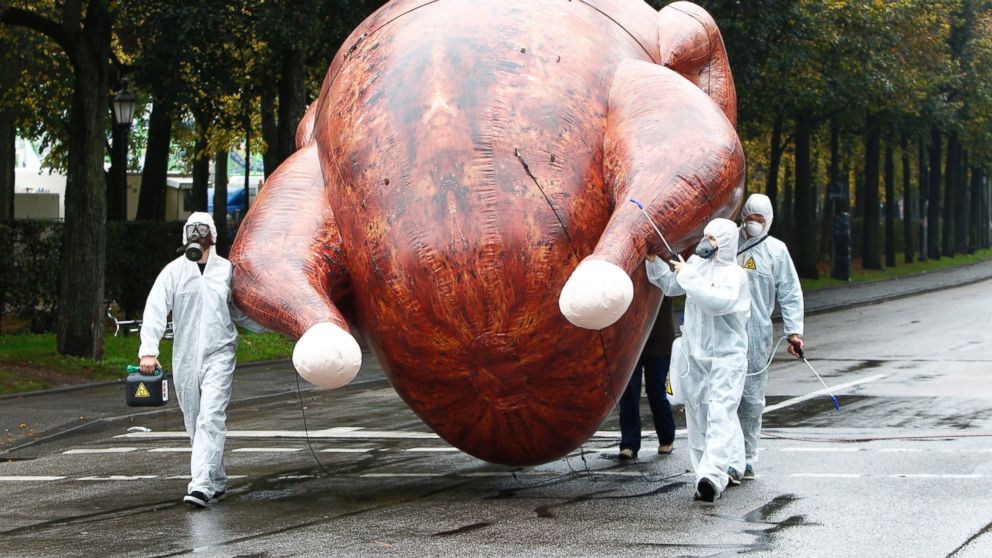TTIP Protests Planned Across Germany
Demonstrators are expected to turn out in seven cities.

— -- International trade with the U.S. and Canada will be the focus of protests planned for Saturday in seven cities across Germany.
The demonstrations are aimed at the Comprehensive Economic and Trade Agreement (CETA) and the Transatlantic Trade and Investment Partnership (TTIP), major international trade agreements being negotiated between the European Union (E.U.), Canada and the United States.
Negotiations over TTIP looked like they might be derailed in late August when the Sigmar Gabriel, the German economy minister, said that in his opinion the talks "have de facto failed, even though nobody is really admitting it."
That comment spurred negotiators and officials on both sides of the Atlantic to shift into damage control mode and dismiss notions of the talks breaking down.
The next round of negotiations is slated for Oct. 3 in New York.
The protests planned for Saturday follow similar demonstrations in Germany against the TTIP in recent months.
In April, during the lead-up to President Barack Obama's visit to the German town of Hannover, a crowd that police estimated to be 35,000 strong turned out against the deal. The demonstration's organizers estimated there to be 90,000 on the streets.
That followed protests in November, when an estimated 100,000 people turned out in Berlin against the deal that is still being negotiated.
The deal is being derided by nationalists, trade unions and environmental groups who say it hurts workers by driving down wages and harms consumers by degrading protections. They also say it hurts the environment by eroding standards.
High up on the list of other concerns for opponents is the proposed establishment of investment courts, which they say would prioritize profit over democracy.
The courts, which were proposed by the E.U. Commissioner for Trade Cecilia Malmström, would allow companies to challenge governments over regulations that they deem excessive.
However, proponents of the special courts say that they are necessary because juries don't understand the complexities of international law and because U.S. companies could face discrimination in the courts of some European countries.
Supporters of TTIP, which has been the subject of negotiations for over three years, say that it will strengthen U.S.-E.U. ties, while boosting economic growth and supporting jobs on both sides of the ocean.
A U.S. government website describes the deal as a "cutting-edge agreement aimed at providing greater compatibility and transparency in trade and investment regulation, while maintaining high levels of health, safety, and environmental protection."
Negotiations over CETA, a proposed agreement between the E.U. and Canada, were concluded in August 2014, and the deal awaits final approvals.
The Associated Press contributed to this report.